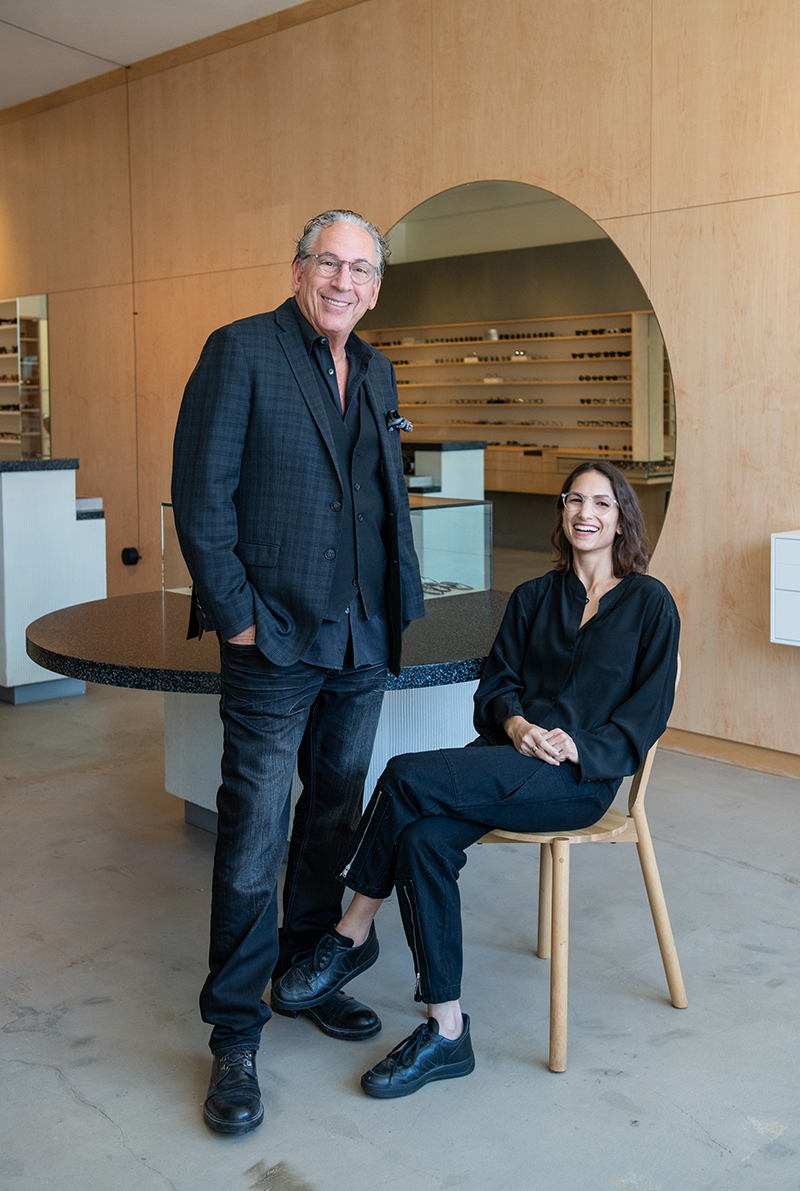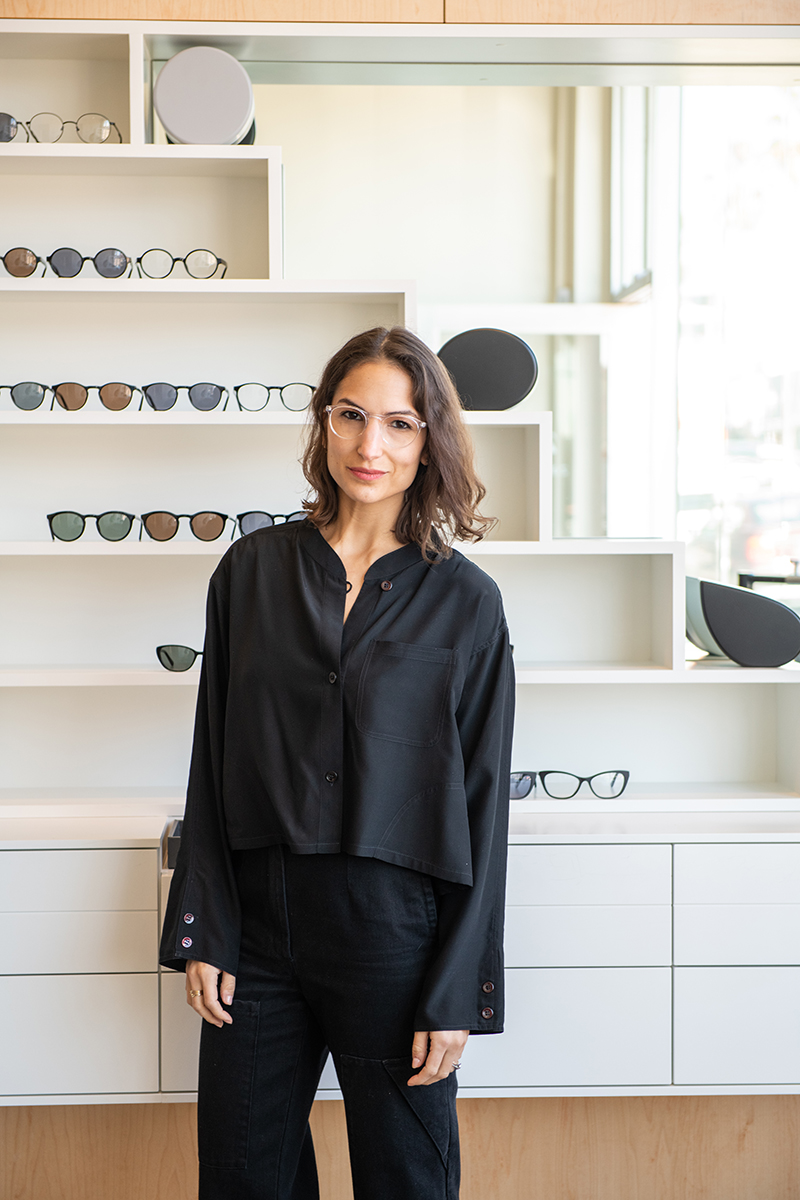You asked for more content around business finances, so we’re delivering. Welcome to Money Matters where we give you an inside look at the pocketbooks of CEOs and entrepreneurs. In this series, you’ll learn what successful women in business spend on offices spaces and employee salaries, how they knew it was time to hire someone to manage their finances, and their best advice for talking about money.
Photo: Courtesy of Zak.
I’ve had 20/20 vision my entire life and despite regular visits to the doctor or dentist to take care of myself, eye care has definitely been pushed to the bottom of my to-do list. In fact, I’m ashamed to admit that I’ve never had my eyes checked and with my 40th approaching next year, I suddenly started to notice a shift in my sight. It slowly creeped up on me and for a long time I thought my eyes were just tired and dehydrated from staring at a screen all day (and they probably were). But after speaking with the founder of L.A.-based eye health brand, Zak., Kyly Rabin I soon realized that it could be more, and that, unfortunately, I’m not alone in neglecting my eye health.
It’s one of the reasons she launched Zak and it’s bricks and mortar store on the popular Fairfax street in West Hollywood (next to Jon & Vinny's, across from Canter's Deli, LA's most walkable block) along with her father, renowned optometrist Dr. Myles Zakheim. Despite nine out of 10 people agreeing that eye health is important, only half of them actually see a specialist or do anything about it and just “1% of people know that signs of serious conditions like thyroid disease, high blood pressure, autoimmune disorders and certain types of cancer can be detected through annual eye exams.”
So, Rabin and her father set about creating a new way of seeing *pun intended* the world of eye care. Their 360 approach covers the spectrum of eye health including exams with an on-site optometrist, and exclusive frames with same-day fabrication in their on-site lab, and even blue light lenses for screen time. Rabin hopes to disrupt the eyewear industry making eye health as routine as dental, body, and skin.
My personal experience at Zak was extremely positive. Every step of the examination process was explained to me so I felt comfortable along the way and in control of the care I was receiving. Turns out, I did need a mild prescription and my eyes were also dehydrated so the optometrist recommended a few drops I can use before bed and in the morning as well as some eye exercises to help with the computer glare and strain. I stepped out of the exam room and ordered my pair of Zak frames which will be made in store and shipped out to me (they arrive today!)—super simple and they only cost $125 with prescription too.
Naturally, I was intrigued to learn more about how Rabin launched their startup especially since this model hasn’t been been done before and there was no roadmap. Ahead, Rabin shares her financial journey, what she’s paying herself, her team, and their top three biggest expenses each month.
Where do you think is the most important area for a business owner to focus their financial energy?
Product, creative and team are all mission critical. Each area fuels the other. If I had to choose one area for Zak. it would be product—core product, and the goods or services you’re providing, is the backbone of your business and deserves the appropriate resources (both time and financial). You have to get that core product right first and everything else can follow.
What was your first big expense as a business owner?
Our largest initial expense was the design and build out of our brick and mortar space on Fairfax, Los Angeles. An elevated eye care experience is an essential part of our model and it was extremely important to showcase our aesthetic in a physical space that challenges the typically antiquated doctors office in both form and function. As one may expect, design, build, and investing in state-of-the art medical equipment are expensive, but in our case, necessary to nourish our brand and mission.
The second biggest expense was developing our in-house eyewear collection. Zak frames are designed to change the way you shop for glasses. We’ve streamlined the shopping experience so selection is finally easy to navigate while providing styles that function like your favorite white t-shirt/everyday uniform. Our styles are timeless, to the point, unfussy, and at an accessible price point, but not cheaply made. Finding the right partners and vendors to bring our high quality product to life took time (and money).
“We aren’t saving anything. Everything that comes in immediately fuels another area of the business in order to optimize growth.”
How did you decide what to pay yourself?
We are still a very new and currently self-funded business. Before taking the leap into all things Zak., I assessed my savings as I knew a salary wouldn’t be possible for at least the first two years without external investment. I’m not paying myself to ensure that every dime is funneled back into the business, which is necessary at this crucial stage of infancy.
How did you decide what to pay employees?
Our full-time team is made up of optometrists and opticians who power the brick and mortar space. We determined wages based on market value and operational excellence. We believe that investing in our team means investing in our growth. I’m interested in working with people who are smarter and more talented than I am and sometimes that means paying more than I’m comfortable with as I’m betting on the productivity and efficiency that the right team provides, which inevitably drives results.
What are your top three largest expenses every month?
Rent, payroll, and the bank loan.
How much do you spend on office space?
Our Fairfax location is our brick and mortar retail space, medical facility and office. It’s the hub of all things Zak and it comes with a hefty price tag—rent is 14% of our monthly gross.
How much do you spend on employee salaries?
We’re currently a very small team made up of full-time and part-time salaried and hourly employees. Our payroll is approximately 25% of our current monthly revenue.
How much are you saving? When did you start being able to save some of your income?
We aren’t saving anything. Everything that comes in immediately fuels another area of the business in order to optimize growth. Our projections anticipate a break even at the two year mark.
What apps or software are you using for finances?
We use a comprehensive all-in-one software that combines our POS with a fully integrated doctor system (EHR). All patient, retail and sales information live in the same place, which is extremely helpful for financial reporting, which we typically run ourselves.
Do you wish you’d done anything differently in your financial journey as a business owner?
All delays in the launch process were costly. In hindsight, more efficient decision-making and a clear establishment of roles would have expedited our opening. Delays in construction, delivery of product, and staff training resulted in increased expense.
Why should women talk about money?
Awareness. The more we know and share with each other about how we’re spending and what we’re making will allow for an equal playing field.
“Identify the areas to be scrappy versus when it’s worth spending.”
Do you have a financial mentor?
My dad. We are co-founders and both bring different skillsets to the business. He still owns/operates a large multi-office optometric practice in L.A. that he opened over 35 years ago with a bank loan. He is a wealth of knowledge when it comes to finances and specifically financial planning within the optical industry.
What is your best piece of financial/money advice for new entrepreneurs?
Identify the areas to be scrappy versus when it’s worth spending. It’s fundamental to be resourceful and do things on your own that can eventually be outsourced but it’s extremely important to have an understanding of when a spend is essential to your brand.
Up Next: "For 3 Years I Didn’t Pay Myself"—The Pai Skincare Founder Gets Real About Money in Business.


